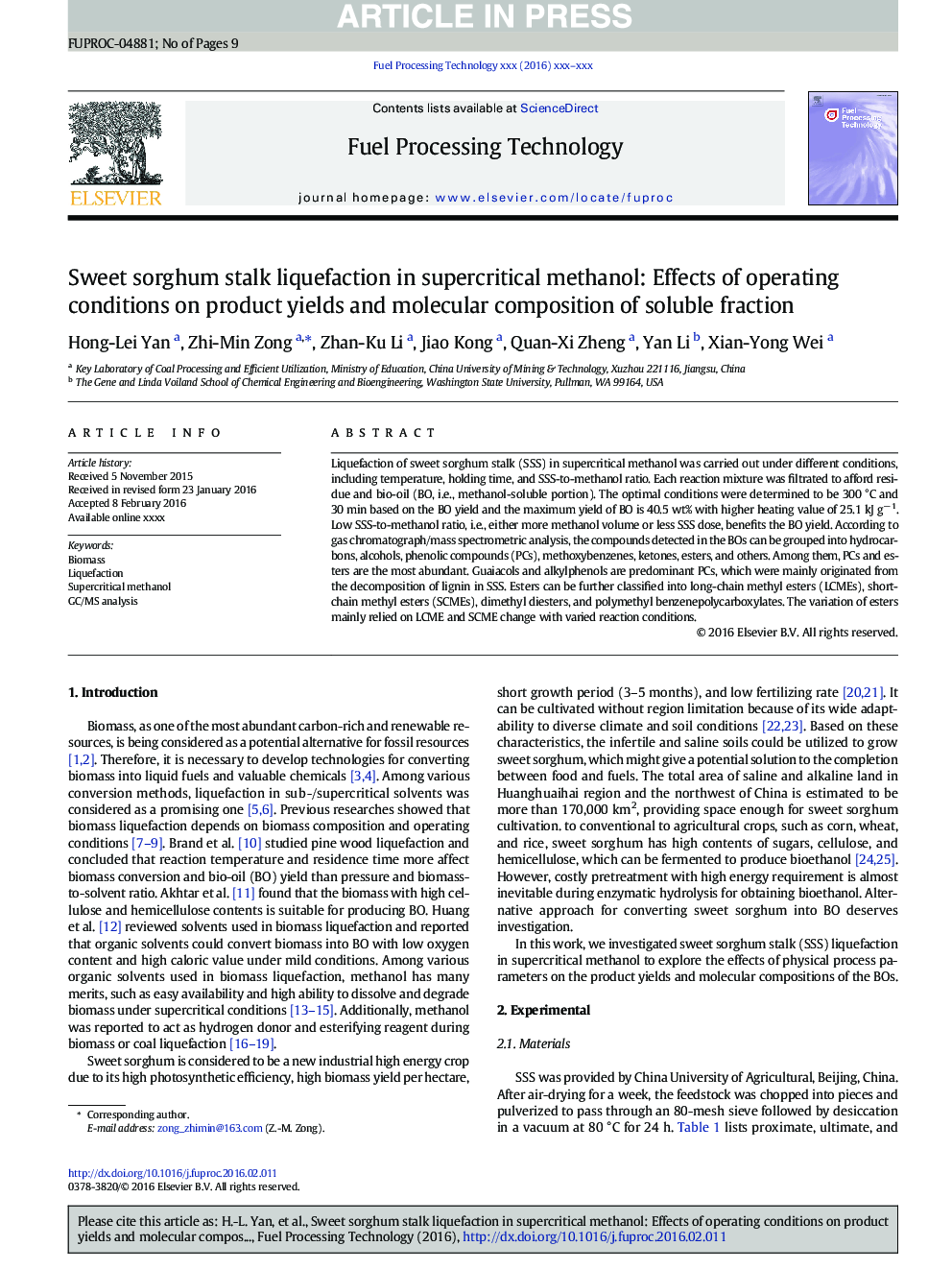| کد مقاله | کد نشریه | سال انتشار | مقاله انگلیسی | نسخه تمام متن |
|---|---|---|---|---|
| 4907134 | 1425391 | 2017 | 9 صفحه PDF | دانلود رایگان |
عنوان انگلیسی مقاله ISI
Sweet sorghum stalk liquefaction in supercritical methanol: Effects of operating conditions on product yields and molecular composition of soluble fraction
ترجمه فارسی عنوان
مایع سازی ساقه شیرین در متانول فوق بحرانی: تأثیر شرایط عملیاتی بر عملکرد محصول و ترکیب مولکولی کسر محلول
دانلود مقاله + سفارش ترجمه
دانلود مقاله ISI انگلیسی
رایگان برای ایرانیان
کلمات کلیدی
موضوعات مرتبط
مهندسی و علوم پایه
مهندسی شیمی
مهندسی شیمی (عمومی)
چکیده انگلیسی
Liquefaction of sweet sorghum stalk (SSS) in supercritical methanol was carried out under different conditions, including temperature, holding time, and SSS-to-methanol ratio. Each reaction mixture was filtrated to afford residue and bio-oil (BO, i.e., methanol-soluble portion). The optimal conditions were determined to be 300 °C and 30 min based on the BO yield and the maximum yield of BO is 40.5 wt% with higher heating value of 25.1 kJ gâ 1. Low SSS-to-methanol ratio, i.e., either more methanol volume or less SSS dose, benefits the BO yield. According to gas chromatograph/mass spectrometric analysis, the compounds detected in the BOs can be grouped into hydrocarbons, alcohols, phenolic compounds (PCs), methoxybenzenes, ketones, esters, and others. Among them, PCs and esters are the most abundant. Guaiacols and alkylphenols are predominant PCs, which were mainly originated from the decomposition of lignin in SSS. Esters can be further classified into long-chain methyl esters (LCMEs), short-chain methyl esters (SCMEs), dimethyl diesters, and polymethyl benzenepolycarboxylates. The variation of esters mainly relied on LCME and SCME change with varied reaction conditions.
ناشر
Database: Elsevier - ScienceDirect (ساینس دایرکت)
Journal: Fuel Processing Technology - Volume 155, January 2017, Pages 42-50
Journal: Fuel Processing Technology - Volume 155, January 2017, Pages 42-50
نویسندگان
Hong-Lei Yan, Zhi-Min Zong, Zhan-Ku Li, Jiao Kong, Quan-Xi Zheng, Yan Li, Xian-Yong Wei,
